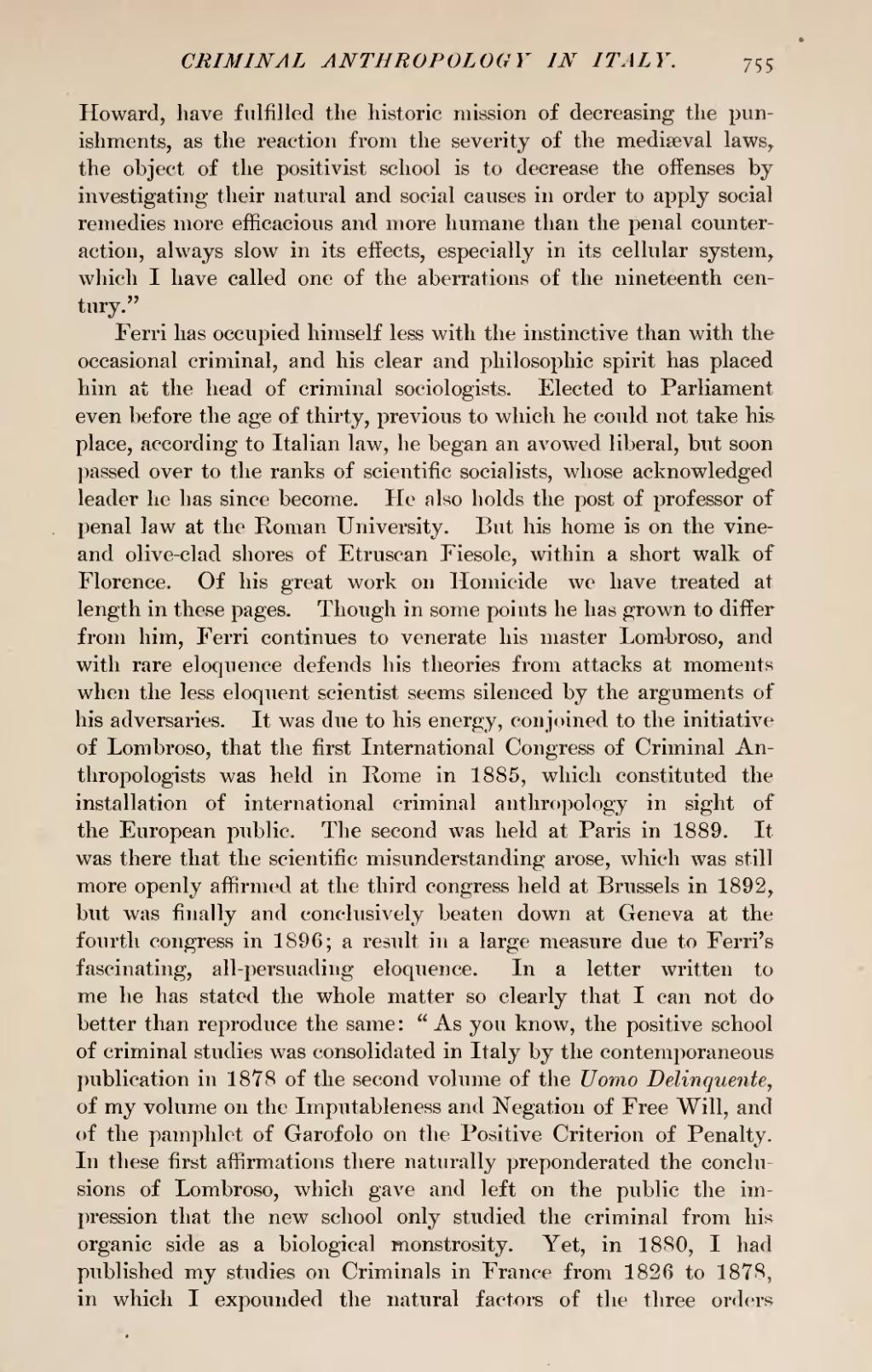Howard, have fulfilled the historic mission of decreasing the punishments, as the reaction from the severity of the mediæval laws, the object of the positivist school is to decrease the offenses by investigating their natural and social causes in order to apply social remedies more efficacious and more humane than the penal counteraction, always slow in its effects, especially in its cellular system, which I have called one of the aberrations of the nineteenth century."
Ferri has occupied himself less with the instinctive than with the occasional criminal, and his clear and philosophic spirit has placed him at the head of criminal sociologists. Elected to Parliament even before the age of thirty, previous to which he could not take his place, according to Italian law, he began an avowed liberal, but soon passed over to the ranks of scientific socialists, whose acknowledged leader he has since become. He also holds the post of professor of penal law at the Roman University. But his home is on the vine-and olive-clad shores of Etruscan Fiesole, within a short walk of Florence. Of his great work on Homicide we have treated at length in these pages. Though in some points he has grown to differ from him, Ferri continues to venerate his master Lombroso, and with rare eloquence defends his theories from attacks at moments when the less eloquent scientist seems silenced by the arguments of his adversaries. It was due to his energy, conjoined to the initiative of Lombroso, that the first International Congress of Criminal Anthropologists was held in Rome in 1885, which constituted the installation of international criminal anthropology in sight of the European public. The second was held at Paris in 1889. It was there that the scientific misunderstanding arose, which was still more openly affirmed at the third congress held at Brussels in 1892, but was finally and conclusively beaten down at Geneva at the fourth congress in 1896; a result in a large measure due to Ferri's fascinating, all-persuading eloquence. In a letter written to me he has stated the whole matter so clearly that I can not do better than reproduce the same: "As you know, the positive school of criminal studies was consolidated in Italy by the contemporaneous publication in 1878 of the second volume of the Uomo Delinquente, of my volume on the Imputableness and Negation of Free Will, and of the pamphlet of Garofolo on the Positive Criterion of Penalty. In these first affirmations there naturally preponderated the conclusions of Lombroso, which gave and left on the public the impression that the new school only studied the criminal from his organic side as a biological monstrosity. Yet, in 1880, I had published my studies on Criminals in France from 1826 to 1878, in which I expounded the natural factors of the three orders

